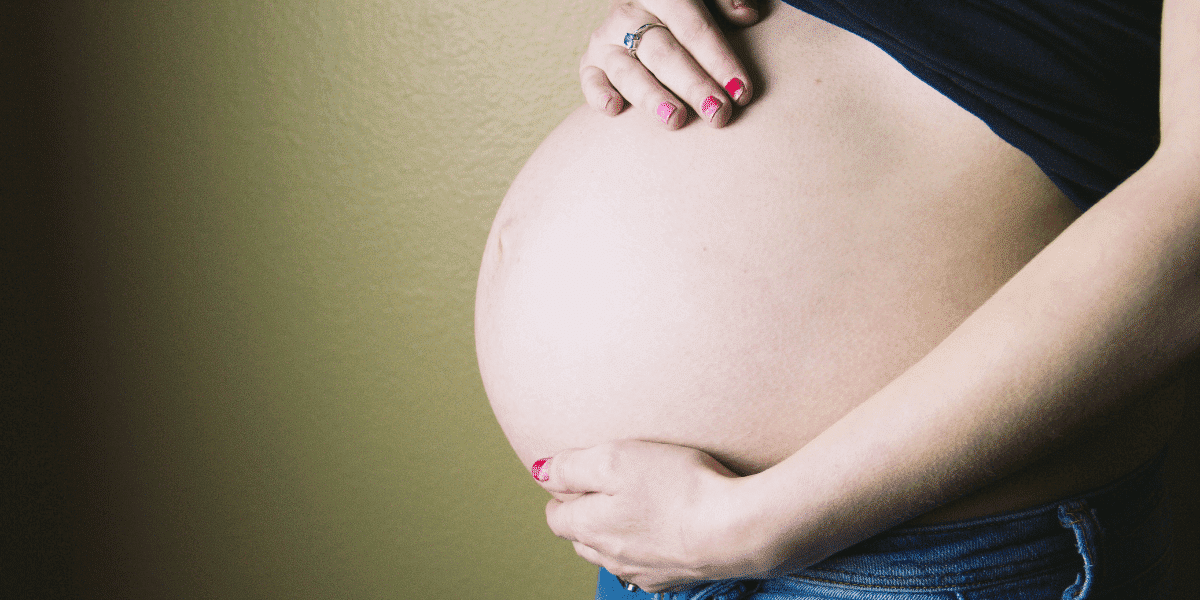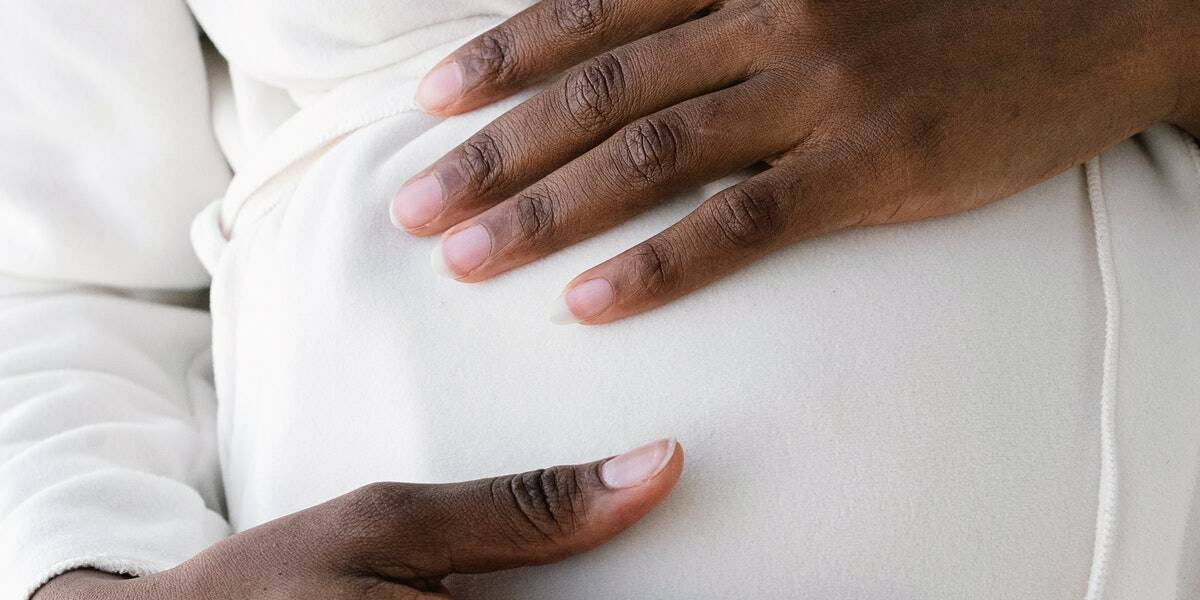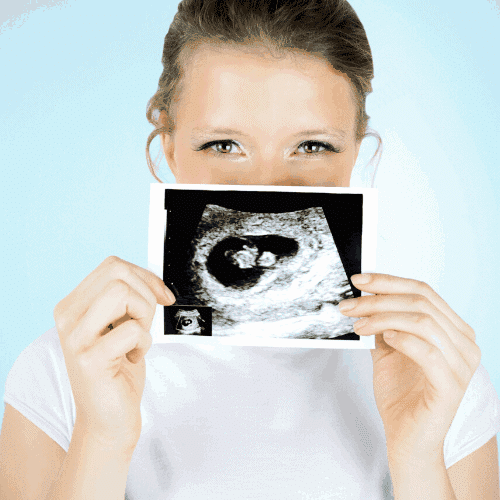During pregnancy, our bodies go through incredible changes. Some are more obvious than others. The more visible ones women report are having thicker hair, weight gain, larger breasts, and changes to skin condition.
There are also less obvious physiological changes such as mood swings, bleeding gums, and one that can be unexpected is an increase in body odor.
But don’t be alarmed. Many of these changes are perfectly natural and a normal part of being pregnant.
As an Amazon Associate, I earn from qualifying purchases. The links below may be affiliate links. Please read my disclosure policy for more information.
Why does my body odor change during pregnancy?
It’s all down to the changes in your hormones. These dramatic changes can have an unwanted effect.
According to newhealthline.org the hormone estradiol increases during pregnancy and it is this increase that contributes to a more pungent odor. The main areas affected are the armpits and genitals.

This is due to your basal metabolic rate increasing, resulting in increased blood supply to those areas. It then causes the sweat glands to work harder.
As the sweat dries on the skin, bacteria grow and it is these bacteria that create an often musty scent. The bacteria, coupled with the increase in estradiol, create a rather unpleasant combination.
An increase in body temperature doesn’t help matters either. With a growing baby, your body increases its temperature to keep your baby warm.
This can cause excessive sweating and a lower tolerance to external temperatures. The additional weight gained during pregnancy also insulates your body, keeping in the heat.
The increased weight gain can also cause excess skin and folds. Between these folds, sweat can build and become trapped. In turn, this results in a culmination of bacteria and yeast that contribute to stronger odors.
The list below displays these changes along with some others:
- Increased blood supply
- Increased metabolic rate
- Weight gain
- More skin allows for more bacteria
- Increased body temperature
- Overactive sweat glands
- Increase in hormones
- Changes in the composition of your sweat
- Fluid retention
Sensitivity to odors

So, why can you smell odors more during pregnancy? This heightened sensitivity to smells is down to the increase of hormones once again.
Smells you may not have noticed before are often much stronger. This can be good or bad, depending on the smell.
Also called hyperosmia, it is a common symptom of pregnancy and often the first one to show during the first trimester. This has even been linked to morning sickness, where the increased sense of smell can trigger vomiting.
The hormone to blame for this is estrogen. It is the increase in this hormone that can make you more sensitive to smells that you may not have noticed before.
But the good news is, this should subside as your pregnancy continues into its final trimester, and certainly after you have given birth.
Other odors to consider

Besides an increase in general body odor, there are other whiffs you may notice. Although these can seem pungent to you, rest assured, with your heightened sensitivity to smell, the chances of others noticing are unlikely.
If it is causing an issue with others, you live or work with, speak to your doctor as they may be able to help.
Gas
Constipation and bloating are two symptoms that can make the pregnancy journey less enjoyable.
This is because digestion slows down thanks to the increasing hormones and the after-effects are often more offensive-smelling wind and what is referred to as “sulfur burps”.
Indigestion is another issue and usually goes hand-in-hand with bloating. As your baby grows, they will push against your stomach and digestive organs, making your body work harder to digest food and sometimes resulting in acid reflux in the later stages.
Bad Breath
Another symptom you can develop is bad breath. This is down to the increased levels of estrogen and progesterone that potentially lead to a buildup of plaque on the teeth.
It is the bacteria in the plaque that creates a sulfur smell. Not every mother experiences this symptom, those that do can feel self-conscious and worry others will notice.
Episodes of morning sickness don’t help matters as well, as this can leave an odor on the breath. Always have water to hand as the bouts of sickness can leave you dehydrated, and this can also trigger bad breath.
Vaginal Odor
As already discussed earlier, the genital area can produce a stronger musty scent during pregnancy. The fluctuating hormones mean vaginal discharge increases and this can cause a stronger smell.
Other contributing factors include yeast infections. Your discharge contains more sugar while you are pregnant. Yeast loves sugar and the more it has, the more it multiplies, resulting in thrush.
Bacterial Vaginosis or BV results from a bacterial imbalance and is the most common vaginal infection in pregnant women. The symptoms are a fishy odor after sex and a grey discharge that also has a fishy odor.
Both thrush and BV are easily rectified by speaking to either your doctor or pharmacist who can provide safe medications to treat these issues.
Certain STDs can also cause odors, such as herpes simplex and gonorrhea. The increased hormones can intensify these infections, making their symptoms worse.
Therefore, it is important to note that if you experience any unusual discharge along with redness, itching, painful urination and burning, to always speak to your doctor as certain medications may be off-limits while pregnant.
Grave’s Disease

This is a thyroid condition some pregnant women develop where their thyroid gland becomes overactive (hyperthyroidism) and produces too many hormones. Overproduction causes an increase in body temperature, especially at night, resulting in night sweats.
However, it is a rare condition and will require medical treatment. If you think there is a possibility of developing Grave’s Disease, there are other symptoms to look out for:
- Failure to gain weight while pregnant
- Thinning skin
- Rapid/irregular heartbeat
- High blood pressure
- Eye sensitivity to light
- Increased bowel movements
- Confusion
- Hair becomes fine or brittle
- Trembling hands
- Bulging eyes
- Muscle weakness
If you think you have Grave’s Disease, see your doctor immediately, as your baby may be exposed to high levels of thyroid hormone. This can result in a goiter developing in your unborn baby.
Foods that can worsen body odor during pregnancy
Few people realize certain foods can contribute to body odor, more so when you are pregnant.
While you should limit the foods on this list because they can make body odor worse, you should always maintain a healthy and well-balanced diet, especially while pregnant.
- Pungent foods such as garlic and chili
- Spices such as cumin and fenugreek
- Cruciferous vegetables such as broccoli, sprouts, cauliflower and cabbage
- Processed foods and junk food
- Amino acids found in red meat
- Seafood and fish
Remedies to reduce body odor during pregnancy
Although there is not a lot you can do about hormonal fluctuations and their effect, there are external ways to improve your symptoms and make you feel better. We shall discuss these in more detail next.
Bath/shower twice a day.
Take a shower or bath twice a day to remove any buildup of sweat, particularly if the weather is hot. Adding boiled mint leaves or drops of lemon to the bath water can help keep bad odors away for longer.
Use an antibacterial soap to kill off the bacteria on your skin that contribute to odors. Always dry with a fresh, clean towel each time.
And remember, avoid harsh soaps on your vaginal area, as these can worsen odors and damage the delicate balance of good bacteria resulting in a fishy smell.
Stick with unscented soaps or washes specifically designed for this area.
Shampoo your hair regularly
Although this is a given for most people, some women are fortunate enough to only need to wash their hair every few days. If you fall into that category, you may need to wash your hair more often while pregnant.
Some women report their hair smelling more musty, and this is down to the changing hormones affecting the bacteria on your scalp. Shampoo at least three times a week to keep any stronger whiffs at bay.
Another useful tip is to spray your hairbrush or comb with perfume and run this through your hair. Although, avoid strongly scented perfumes as these may irritate your nose, especially if you experience hyperosmia.
Trim body hair
Underarm and pubic hair can trap bacteria on the skin, therefore it is advised to keep these areas trimmed short.
You can shave underarm hair as usual (if that’s your usual practice) and keep pubic hair trimmed short.
Deodorant
Avoid any strong smelling ones and go for either unscented or lightly scented versions. If you find your usual deodorant is ineffective, opt for aluminum-based ones, as these are known to be more effective in reducing sweat.
Skin moisturizers
You may find using a lightly scented body cream may be a good option in leaving a lasting, pleasant scent on your skin.
If you experience very dry skin during pregnancy, then you may have to opt for unscented specialist creams as scented ones can irritate eczema and dry skin.
Breathable clothing
Be sure to wear light natural fibers. These will help your skin to breathe and wick sweat away.
It is also helpful if they are loose-fitting to allow for efficient air-circulation, keeping you cool. Also, don’t be tempted to wear the same item of clothing twice. Wash everything after you’ve worn it to reduce musty smells building up on fibers.
One useful tip to remove lingering odors from clothing is to add a quarter cup of white vinegar to your laundry wash. If you’re not in the habit of using a fabric conditioner, now is a good time to start.
There are plenty of eco-friendly options to choose from that also take sensitive skins into consideration.
Hydration
As discussed, it’s more important than ever to stay hydrated while you are pregnant. Not only are you consuming water for yourself, but your growing baby.
For this reason, you may feel thirstier than usual. Water also helps to reduce body odor by flushing out toxins.
Helpful odor reducing foods

There are foods out there thought to reduce body odor during this time. Fresh fruit and vegetables that are not cruciferous help to eliminate odors.
Although, you should still try to eat some of the offending cruciferous vegetables as they contain valuable nutrients both you and your developing baby need. Another factor to consider is ensuring you consume plenty of fiber.
This will help your body move the digesting food through your gut and reduce bloating and constipation.
In conclusion
Unusual symptoms during pregnancy, whether they are good or bad, are part of the process and more often than not, nothing to worry about.
However, always see your doctor without hesitation if you have any concerns or any odor your body produces, does not improve or worsens.











